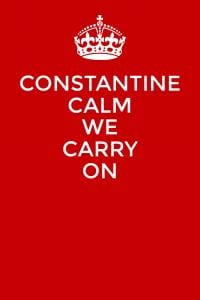 We cannot talk intelligently about a crisis if we do not have the right vocabulary. To do the right thing, we need to be able to distinguish all the different parts of complicated problems that pop up in our broken world. One distinction is intention. Actions can lead to intended consequences, but sometimes there are unintended consequences. Generally, a person is not morally responsible for unintended consequences. Another helpful ethical category is active versus passive actions. To do a thing is different from not doing a thing!
We cannot talk intelligently about a crisis if we do not have the right vocabulary. To do the right thing, we need to be able to distinguish all the different parts of complicated problems that pop up in our broken world. One distinction is intention. Actions can lead to intended consequences, but sometimes there are unintended consequences. Generally, a person is not morally responsible for unintended consequences. Another helpful ethical category is active versus passive actions. To do a thing is different from not doing a thing!Thinking more carefully naturally leads to questions. Here are two.
Doesn’t this distinction mean the powerful will demand that they be judged by intention and the harm to the powerless dismissed as irrelevant?
The wicked amongst the powerful indeed will demand such treatment and it is wicked. One thing I learned in West Virginia is that the powerful are no more wicked than the poor, but they have the power to make us do what they wish.
The poor are no more righteous than the rich, (see what happens if we are cursed to win the lottery), but we lack the power to do as much harm. When we have gone wrong, we mostly harm ourselves and a few around us (Lord have mercy!), but the rich can harm millions.
The saints with power and money can help millions.
The distinction matters, but anything can be misused.
No harm is irrelevant. Every harm is a matter of sorrow, God forgive me. No bad thing is irrelevant to the moral calculus and must always be regretted.
Yet.
Yet.
Consider that in a complicated world goods can collide and sometimes we must choose to get less of one good to get the best possible outcome. We guess, we try, we are unsure.
We do what we can. Misusing good does not make the good less good, but the wicked ever more wicked.
Isn’t not doing a good and necessary thing often wicked?
One person said this to me:
















